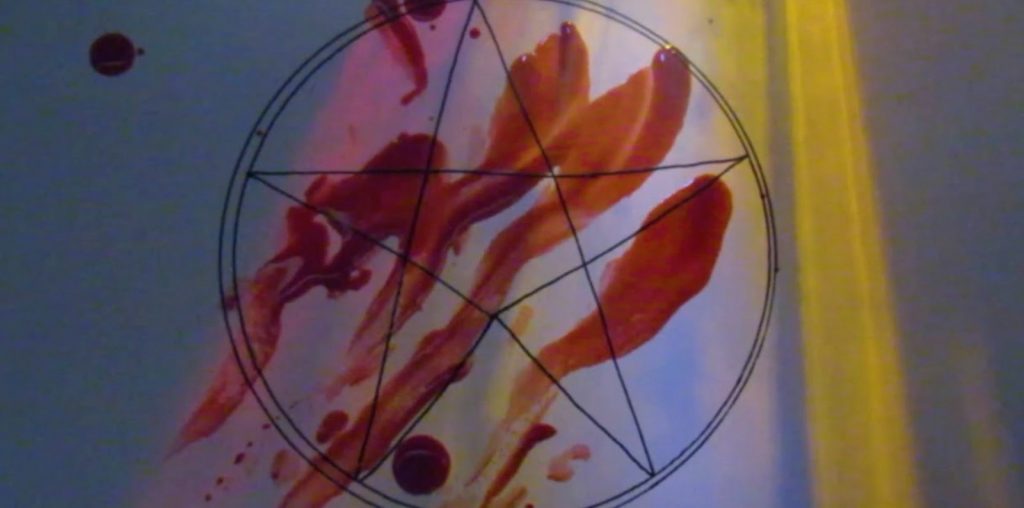
The First Liberian Civil War lasted from 1989 until 1996. During this time, a young warlord named Joshua Milton Blahyi adopted the name “General Butt Naked” as he led his even younger troops to battle. He and his child soldiers would storm the streets of Liberia completely nude save for shoes and machine guns. The General believed that stripping away clothing would give them the spiritual strength to ward off death. The mere mention of his name would cause entire blocks of people to scatter for their lives. During the War, Butt Naked’s troops raped, murdered, and tortured civilians and other soldiers, even the infants. His soldiers held him in a God-like regard while his victims considered him an inhuman monster. But The Redemption aims to tell a story of a changed man. Returning back to Liberia after ten years in exile, Butt Naked, now going by his birth name, attempts to undo the harm he’s caused. Travelling from town to town as an evangelistic preacher, Blahyi seeks out his victims and their families to seek forgiveness.
Balancing between news coverage and retellings of horrific past events and Blahyi’s present day journey to make amends, the filmmakers let those involved tell their own stories. And it’s explicitly clear from the first few minutes of the film that Blahyi has a lot of stories to tell and will tell them to anyone willing to hear them. He’s shown preaching “God’s word” to attentive congregations, curious bystanders, and even to solitary individuals, some of whom he directly hurt years earlier. One of the most interesting aspects of The Redemption is the comparison of Blahyi’s military and religious careers. Armed with a commanding presence and a passionate delivery, the ex-chieftain now appears to be using those weapons for good. Instead of convincing pre-teens to murder each other, he’s convincing ex-soldiers and war sufferers to praise Christ without hesitation. But as numerous interviews with those who knew him as “Butt Naked” show, not everyone is convinced. Blahyi’s God-praising messages of transformation and cleansing are edited against naysayers and doubters who’re having trouble believing that changes this drastic are rare, if not impossible.
But while the film is balanced in its portrayal of Blahyi’s claims and the beliefs of those around him, there are specific, and important, parts of the story that The Redemption seem to skip over. First, everyone Blahyi comes into contact with is living in extreme poverty. This is to be expected following two Civil Wars, both of which led to economic disparity. But the economy hasn’t seemed to hit Blahyi that hard. Scene after scene of him on his smartphone, Dell laptop, and spacious bed sharply contrasts with all other imagery here. The film never explains where Blahyi has acquired such wealth. One would assume that he profited greatly off of the war but this is never discussed and would seem to go against his newfound charitable demeanor.
The second, and most glaringly absent, chapter of Blahyi’s transformation is his acceptance of Christ. The entire film hinges on the fact that he is seeking redemption both from his victims and his savior but the emergence of his pacifistic Christianity is brushed over almost completely. A Liberian bishop tells a story of how he risked his life to visit Butt Naked and upon meeting him, he taught the General a prayer. The bishop claims that he knew that the visit would be the changing force in the warlord’s life. Blahyi tells the story differently. According to Blahyi, the bishop’s visit resulted in Butt Naked shooting his bodyguard in each leg for failing to stop the intruder, dragging him into a bathroom, and leaving him without treatment until the doctors had no choice but to amputate. So, it’s pretty safe to say that the transformation started at least after that.
These two large holes in the story hurt the film immensely. One has to wonder if they were excluded from the film due to a lack of cooperation from Blahyi or for some other reason. But either way, The Redemption comes off as a work-in-progress. There are plenty of informative and interesting elements about the film but it’s hard to call the narrative complete.
